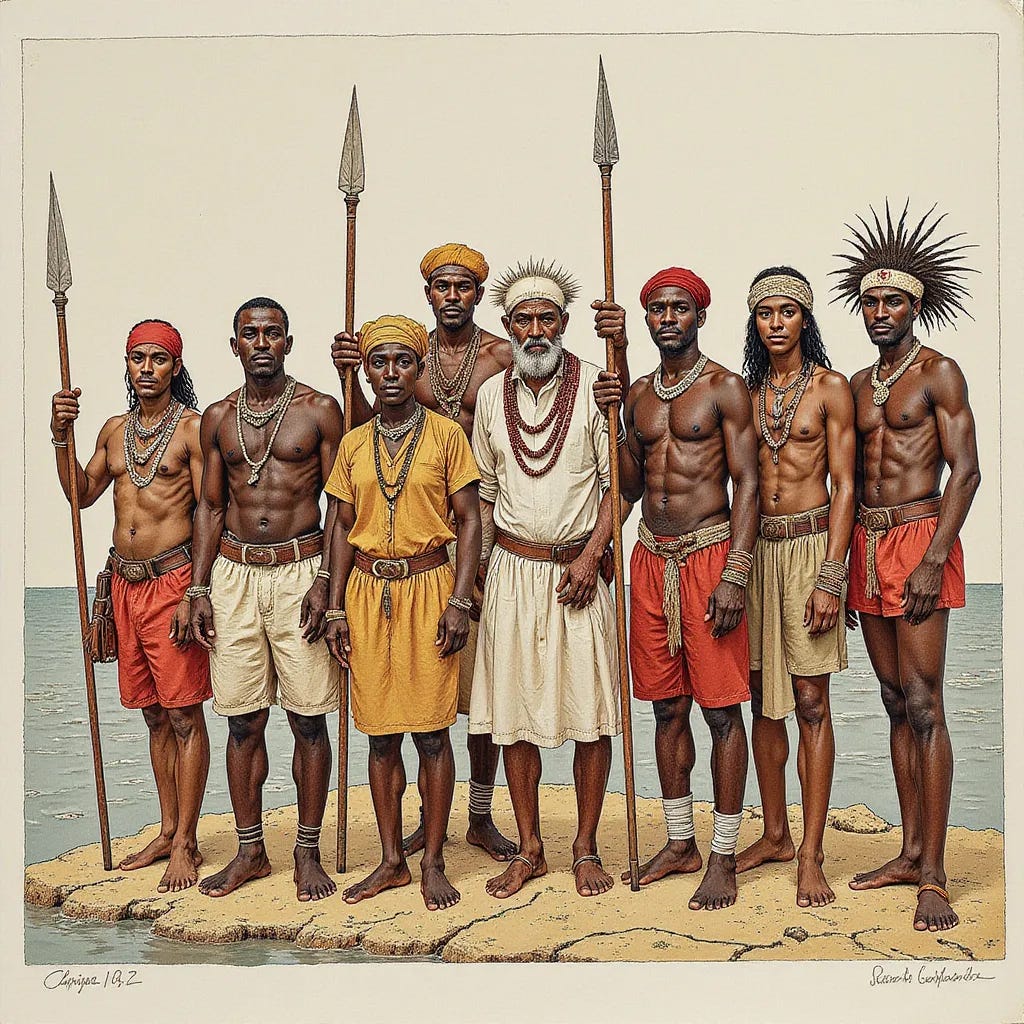The story of the Amistad is not just a tale of rebellion but a powerful testament to the human capacity for collective liberation that fundamentally challenges the white supremacist ideal of individual survival at all costs. When 53 African captives seized control of the Spanish slave ship in 1839, they did more than fight for personal freedom – they embodied a revolutionary understanding of resistance that prioritized community, dignity, and generational hope over mere individual preservation.
The dominant narrative of survival often emerges from a deeply individualistic worldview – a perspective rooted in white supremacist ideologies that reduce human experience to personal preservation. However, the Amistad rebels revealed a profoundly different ethical framework that understands survival as something far more complex and meaningful than simply staying alive.
West African cultural traditions viewed resistance not as a desperate act of self-preservation but as a sacred duty to future generations. These warriors understood that true freedom demands more than an individual escape – it requires a collective commitment to dignity, cultural preservation, and systemic transformation. Between 1619 and 1865, over 250 documented slave revolts demonstrated that resistance was a calculated, principled cultural survival strategy.
The numbers are stark: approximately 2 million enslaved Africans were forcibly transported across the Atlantic, with 40% coming from West African regions with powerful traditions of communal sacrifice. For these communities, death was not an endpoint but a transition – a sacred passage that could liberate entire generations.
This perspective fundamentally challenges the white supremacist narrative that individual survival is the ultimate goal. Instead, the Amistad rebels and other resistance fighters understood that some principles are worth risking everything for. Their actions were not acts of desperation but deliberate choices rooted in a sophisticated understanding of collective liberation.
The impact of such resistance extends far beyond the moment of rebellion. The Amistad case energized the abolitionist movement, transformed public opinion, and created lasting change. Modern social justice movements continue to draw inspiration from this legacy, demonstrating that meaningful transformation requires looking beyond individual self-preservation.
Today, we are called to honor this legacy by recognizing that our individual lives gain meaning through our connections to the community and our commitment to broader struggles for justice. The Amistad rebels remind us that resistance is not about personal survival but about creating pathways of liberation for those who will come after us.
The arrogance of white supremacist individualism lies in its fundamental misunderstanding of human interconnectedness. True strength emerges not from protecting oneself at all costs but from understanding our profound responsibility to each other and future generations.
As we continue to confront systemic oppression, we must embrace a more expansive vision of survival that prioritizes collective dignity, cultural preservation, and transformative justice. The Amistad story is not just historical – it is a continuing call to action, challenging us to see beyond the narrow confines of individual survival and toward a more profound understanding of human solidarity.




